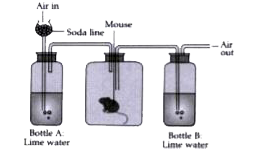Define the process of embryogenesis.
Step-by-Step Text Solution:
1. Definition of Embryogenesis: Embryogenesis is the biological process by which an embryo develops from a fertilized egg (zygote) into a more complex structure, eventually forming a fetus.
2. Formation of Zygote: The process begins with the fusion of the male gamete (sperm) and the female gamete (ova). This fusion results in the formation of a zygote.
3. Cell Division: Once the zygote is formed, it undergoes a series of cell divisions known as cleavage. This process increases the number of cells without increasing the overall size of the embryo.
4. Differentiation: As the cells continue to divide, they begin to differentiate into various cell types. This differentiation is crucial as it leads to the formation of different tissues and organs in the developing embryo.
5. Development into Fetus: The differentiated cells organize into structures that will become the various parts of the body, and the embryo continues to develop until it reaches the stage of a fetus.
6. Conclusion: Thus, embryogenesis encompasses the entire journey from the zygote stage through cell division and differentiation, leading to the formation of a fully developed fetus.
---
Topper's Solved these Questions
- REPRODUCTION IN ORGANISMSBOOK - ICSECHAPTER - REPRODUCTION IN ORGANISMSEXERCISE - PRACTICE QUESTIONS (B)( Short Answer Type Questions) (2 Marks each)
17 Videos
- REPRODUCTION IN ORGANISMSBOOK - ICSECHAPTER - REPRODUCTION IN ORGANISMSEXERCISE - PRACTICE QUESTIONS (C)( Short Answer Type-II Questions) (3 Marks each)
15 Videos
- REPRODUCTION IN ORGANISMSBOOK - ICSECHAPTER - REPRODUCTION IN ORGANISMSEXERCISE - COMPETITION CORNER OBJECTIVE TYPE QUESTIONS ((B) Assertion and Reason Type Questions) (Fopr AIIMS aspirants)
16 Videos
- QUESTION PAPER 2022 TERM 1BOOK - ICSECHAPTER - QUESTION PAPER 2022 TERM 1EXERCISE - MULTIPLE CHOICE QUESTIONS
45 Videos
- REPRODUCTIVE HEALTHBOOK - ICSECHAPTER - REPRODUCTIVE HEALTHEXERCISE - SOURCE BASED QUESTIONS
23 Videos
Similar Questions
A. The unicellular zygote developes into a multicellular embryo during embryogenesis.
R. Organogenesis forms an important part of the process of embryogenesis.
View SolutionDefine the process of osmosis.
View SolutionA: Zygote is the first cell of the new ganeration in all sexually reproducing organisms.
R: Cell division and cell differentiation are the stages of embryogenesis.
View Solution(a) Differentiate between meristematic and permanent tissues in plants.
(b) Define the process of differentiation
(c) Name any two simple and two complex permanent tissues in plants.
View SolutionDefine cellular respiration. Why is glycolysis also called anaerobic respiration? Describe the process of glycolysis.
View SolutionDefine the Cyclic process.
View SolutionDefine the process of making food by the plants.
View SolutionGiven below is an experimental setup to demonstrate a particular process in animals. Answer the questions that follow:

(i) Name the physiological process being studied.
(ii) Define the process mentioned in (i).
View SolutionDefine Raschig Process
View SolutionDifferentiate between gametogenesis and embryogenesis.
View Solution